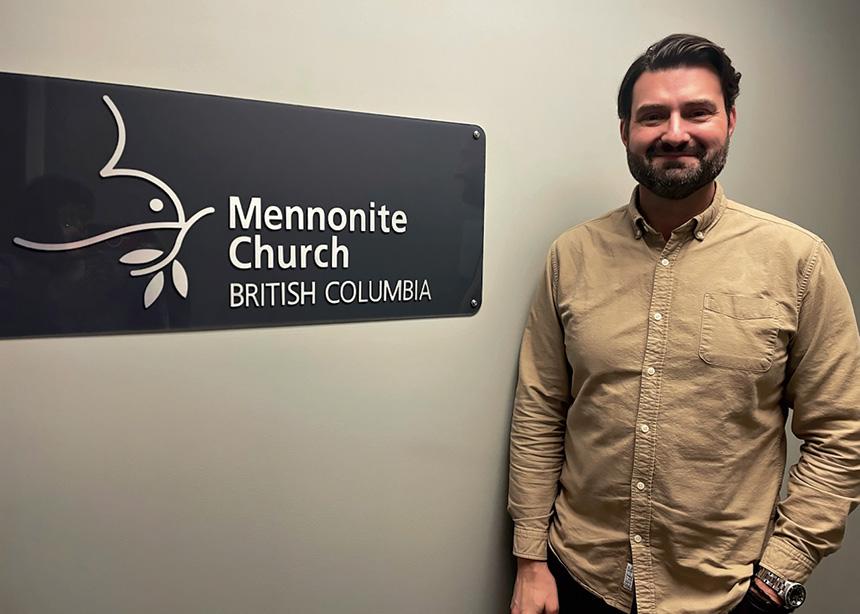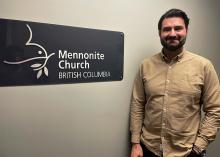At the time of assuming his new role as executive minister of Mennonite Church B.C. in August, Shel Boese recalls being asked about his vision for MC B.C. “It doesn’t matter what my vision is,” he replied, “we need to determine that together. It needs to be a shared vision.”
That philosophy sums up Boese’s cooperative approach. He admits he doesn’t care for the title of executive minister, as he sees himself more as a shepherd than an office executive.
Boese’s task now is to get acquainted with the people, pastors and the 23 congregations of MC B.C. So far, he’s visited most of them, or visited with their leaders. He has spoken in several.
“In our polity, it’s relational, discerning together,” says Boese. “For me to be able to do this job well, I need to know people. What are their hopes, challenges, shared vision?”
Though he has a background that spans several denominations, Boese says he has been “very Anabaptist all along.” He became acquainted with Mennonites during his childhood in South Dakota, through Salem-Zion Mennonite Church of Freeman and the Friedensberg Bible Church. He attended a Baptist seminary, was ordained in the Assemblies of God denomination, has helped plant churches with the Christian and Missionary Alliance, and was involved in Toronto with the Meetinghouse, part of the Be In Christ denomination (formerly Brethren in Christ).
Boese spent two years in Sarasota, Florida, pastoring a Mennonite congregation, and most recently served at Pilgrim Baptist Church in Vancouver.
For Boese, the concept of a “centred-set church” is vital. This refers to the idea of fostering Christian communities that aren’t based on drawing lines to exclude others, but rather putting Jesus at the centre. “Centre-set goes back to the Radical Reformers,” he says, “and back to the New Testament. It’s reading the Bible through a Jesus-lens . . . the Gospels, Sermon on the Mount. Paul uses the language too in magnifying Jesus as the fullness of God.”
For Boese, church-building, both through revitalization and starting new congregations, is a priority. He believes new congregations don’t necessarily have to look like traditional ones.
Other priorities include supporting churches in transition and finding new funding streams, such as endowments.
Coming into MC B.C. with fresh eyes, Boese observes that there is a wide variety of beliefs in MC B.C., with those on both ends of the theological spectrum needing to have a voice. A theologically centred-set church can “agree to disagree” on many issues, he says.
“We need to find a more generous space,” he believes. “Some of our conservative churches have said they felt ignored. Some progressives wonder why we’re not working faster.”
Boese senses excitement about the future, especially among younger leaders. “People sense there are good things to come, with relational unity and long institutional relational glue that binds people together.” He says he would like there to be “an Anabaptist church in each major city in B.C., to see us have a real robust footprint.”
Boese would like to see an improvement in “how we posture ourselves in the community physically,” including upgrades in many buildings to leverage rental opportunities.
Boese wonders how MC B.C. can better relate to the Mennonite Brethren in the province, who vastly outnumber members of MC B.C.
“I sense there is a holy optimism that God has more for us,” he concludes. “We have a purpose and there is a mission. There is a reason why we’re here. I’m sensing some real hope for the future. It helps to fuel the creativity to change.”




Add new comment
Canadian Mennonite invites comments and encourages constructive discussion about our content. Actual full names (first and last) are required. Comments are moderated and may be edited. They will not appear online until approved and will be posted during business hours. Some comments may be reproduced in print.